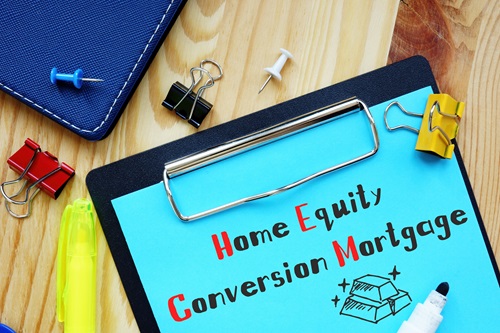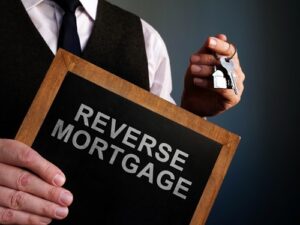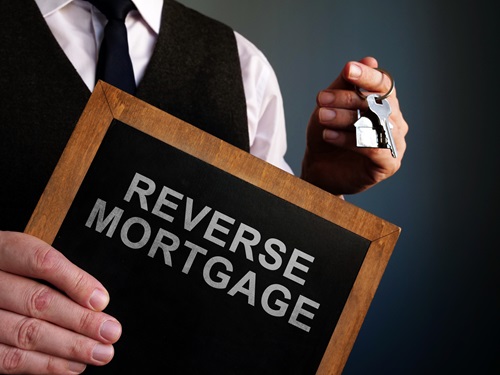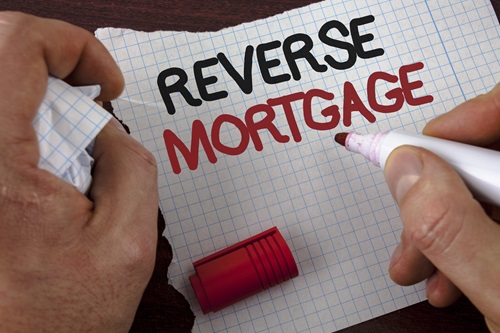
Are you looking for ways to improve financial stability during retirement? Then, a HECM loan could offer the solution you’ve been searching for. It’s for homeowners aged 62 and older. This federally insured reverse mortgage allows you to convert a portion of your home equity into cash. Plus, it doesn’t require you to give up your home or taking on monthly mortgage payments.
This guide will help you understand what a HECM loan is, how it works, and why it may be worth considering as part of your retirement strategy.
What Is an HECM Loan and Why It’s Different
An HECM loan, or Home Equity Conversion Mortgage, is a reverse mortgage that lets you access your home’s equity without selling the property. Unlike a traditional mortgage where you make payments to a lender, it works the other way around. With a HECM, the lender pays you. You can receive the funds in a lump sum, through monthly payments, or from a line of credit.
You remain the homeowner, and you don’t need to make payments until you move out of the home permanently, sell it, or pass away. To keep the loan in good standing, you’ll need to pay property taxes, insurance, and cover general maintenance.
Who Is Eligible?
To qualify for a HECM loan, you must be at least 62 years old and live in the home as your primary residence in Greenville SC. Additionally, you’ll need to have either fully paid off your mortgage or have substantial equity in the property. The home itself must meet FHA requirements, which typically include single-family homes, certain manufactured homes, or approved condominiums.
Unlike traditional mortgages, credit scores are not the primary factor. However, you still need to meet basic financial obligations and complete counseling with an approved HECM advisor to understand the terms fully.
Flexible Payment Options
One reason why many retirees choose an HECM loan in Greenville SC is its flexible disbursement structure. If you prefer a large upfront payment, you can receive the funds all at once. If steady income suits your needs better, monthly payments are available for either a fixed period or for as long as you remain in the home.
Alternatively, the line of credit option allows you to draw money as needed—and here’s the unique part: any unused credit grows over time. This feature gives you access to more funds later, without being dependent on market conditions.
When Does the Loan Become Due?
 Reverse Mortgage in Greenville SC
Reverse Mortgage in Greenville SCAlthough there are no monthly repayment requirements, the loan must eventually be repaid. This usually happens when you move out permanently, no longer live in the home for the majority of the year, or fail to meet your financial responsibilities under the loan.
If the loan becomes due, most homeowners or their heirs repay the balance by selling the home. Thanks to the non-recourse feature, if the property sells for less than what’s owed, neither you nor your heirs are personally responsible for the shortfall. On the other hand, if the sale price exceeds the loan balance, the remaining equity belongs to your estate.
HECM Loan vs. Private Reverse Mortgages
While the HECM loan is the most popular type of reverse mortgage, some borrowers might find proprietary options appealing. These private loans can be helpful if your home is worth significantly more than the HECM loan cap or if your property didn’t get an FHA approval.
It’s also worth noting that private reverse mortgages may be available to homeowners under 62, depending on the lender’s terms. However, they don’t offer the same federal protections as HECM loans, so careful consideration is necessary.
Benefits for Retirees
Many retirees appreciate that a HECM loan allows them to stay in their homes while accessing much-needed funds. Since there are no required monthly payments, cash flow becomes easier to manage. Additionally, the money you receive is generally not taxed as income and does not affect Social Security or Medicare benefits.
Homeowners often use the funds to eliminate an existing mortgage, cover medical expenses, renovate their homes, or simply increase their financial flexibility. Because you retain ownership, you can sell the home anytime or leave it to your heirs if you wish.
Points to Consider Before Moving Forward
Despite its advantages, a HECM loan isn’t right for everyone. Because interest and fees accumulate over time, your home equity will decrease unless you choose to make voluntary payments. This could leave fewer assets for your heirs.
Additionally, eligibility for need-based programs like Medicaid might be affected if the cash from the HECM is not handled carefully. While closing costs are often rolled into the loan, they can be higher than those associated with traditional home loans or lines of credit. Lastly, if you still have a mortgage on the property, it must be paid off using HECM proceeds at closing.
Smart Ways to Use an HECM Loan
Strategically, an HECM loan can do more than just increase your monthly cash flow. Many retirees use the line of credit option to avoid withdrawing from their retirement investments during market downturns. Others use it to delay collecting Social Security, which increases benefits over time.
You can also use the funds to modify your home for aging in place, fund in-home care, or simply enjoy more financial security without needing to downsize. The flexibility makes it a versatile option for a wide range of retirement goals.
Is an HECM Loan the Right Fit?
Choosing an HECM loan is a personal decision that depends on your lifestyle, goals, and financial needs. If staying in your home and gaining access to additional funds sounds like the right combination, this loan structure could be a helpful tool.
It’s often wise to include your family or Reverse Mortgage Specialist in the decision-making process to make sure everyone is on the same page. While an HECM isn’t a one-size-fits-all solution, it can be a powerful way to make your home equity work for you during retirement.
Curious how an HECM loan could support your retirement lifestyle? Call Reverse Mortgage Specialist to learn more today and explore what your home equity can really do.


 Reverse mortgage in Greenville SC
Reverse mortgage in Greenville SC Reverse mortgage in Greenville SC
Reverse mortgage in Greenville SC
 Reverse mortgage in Grenville SC
Reverse mortgage in Grenville SC
 Reverse Mortgage in Greenville SC
Reverse Mortgage in Greenville SC

 Reverse mortgage in Greenville SC
Reverse mortgage in Greenville SC
 Reverse mortgage in Greenville SC
Reverse mortgage in Greenville SC